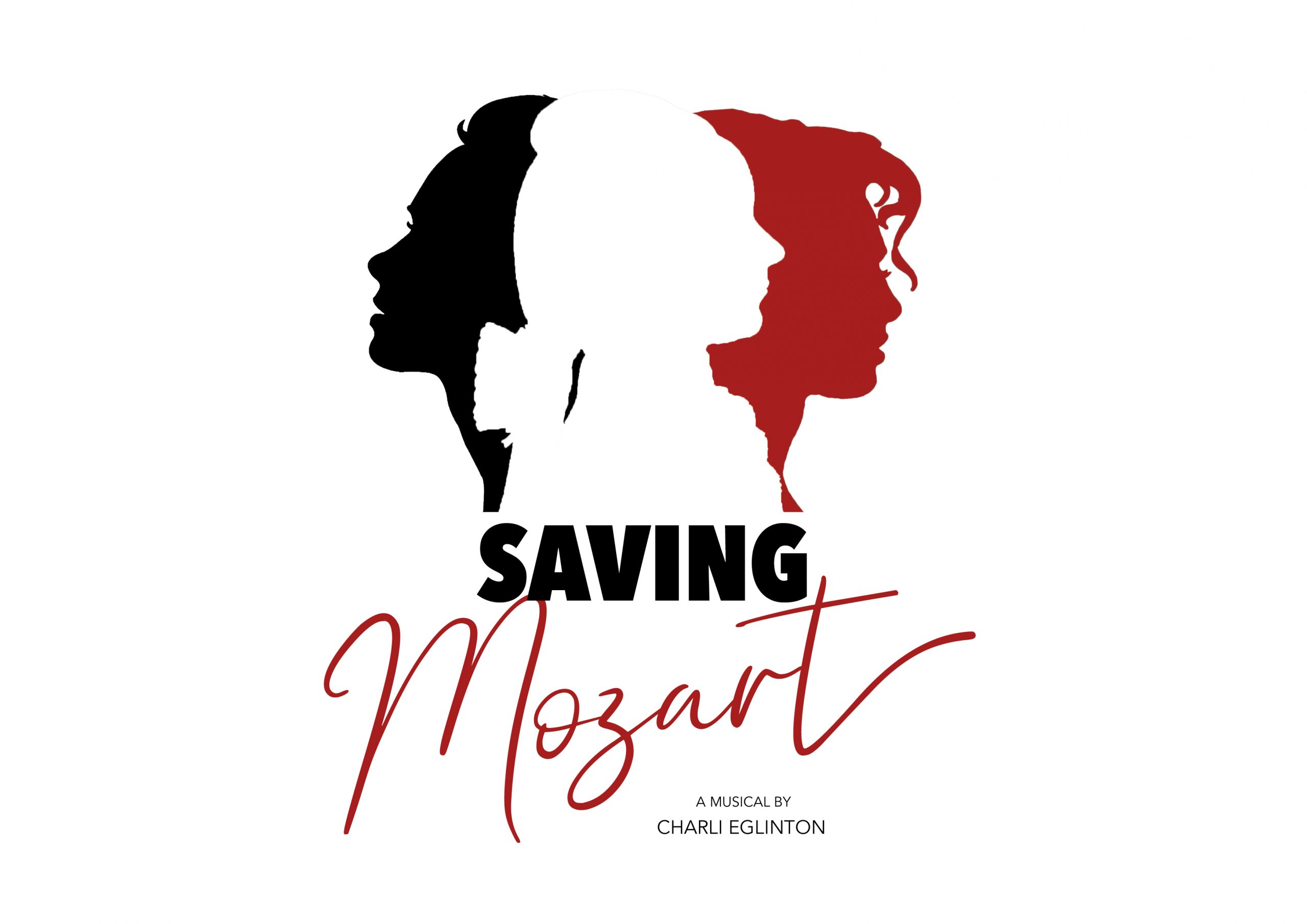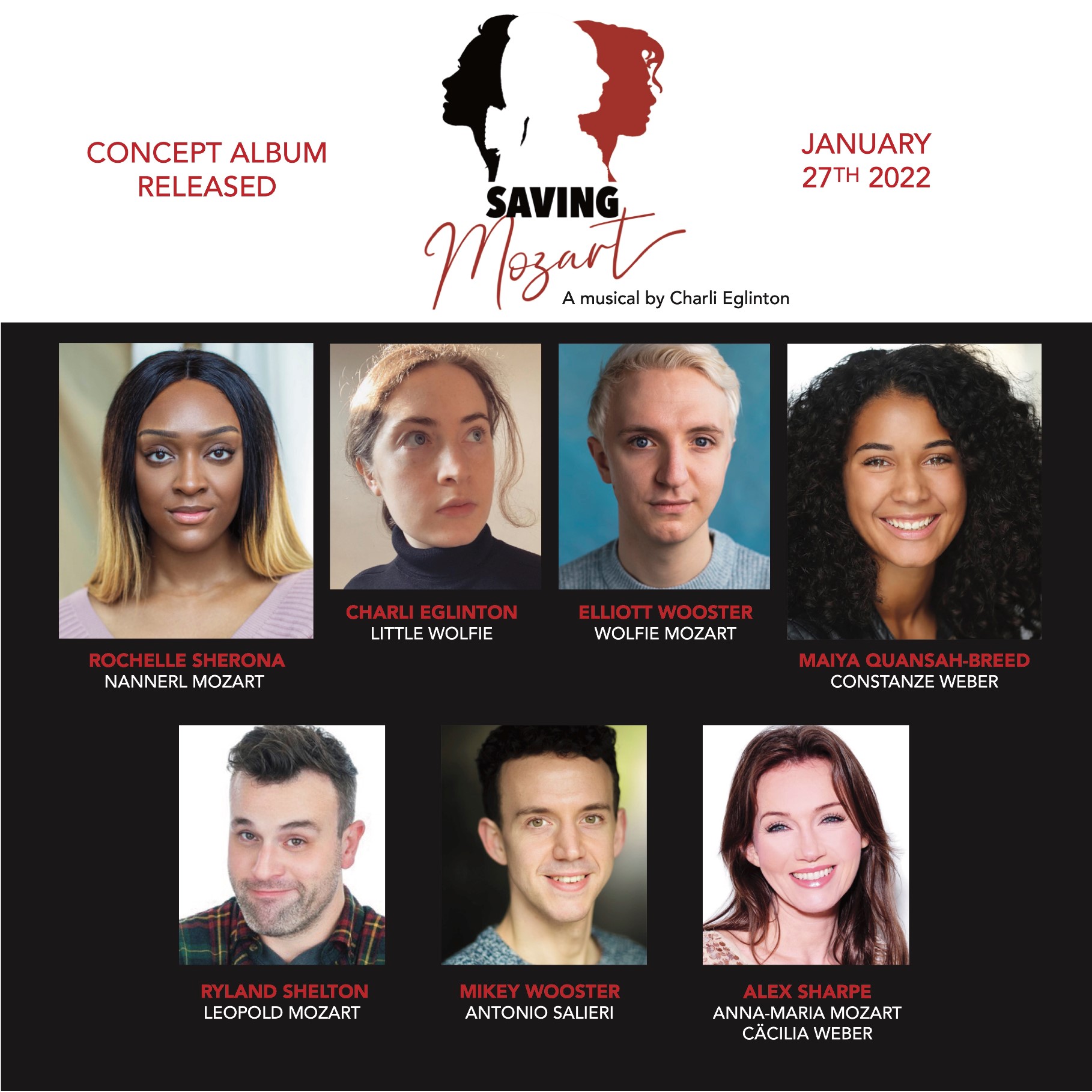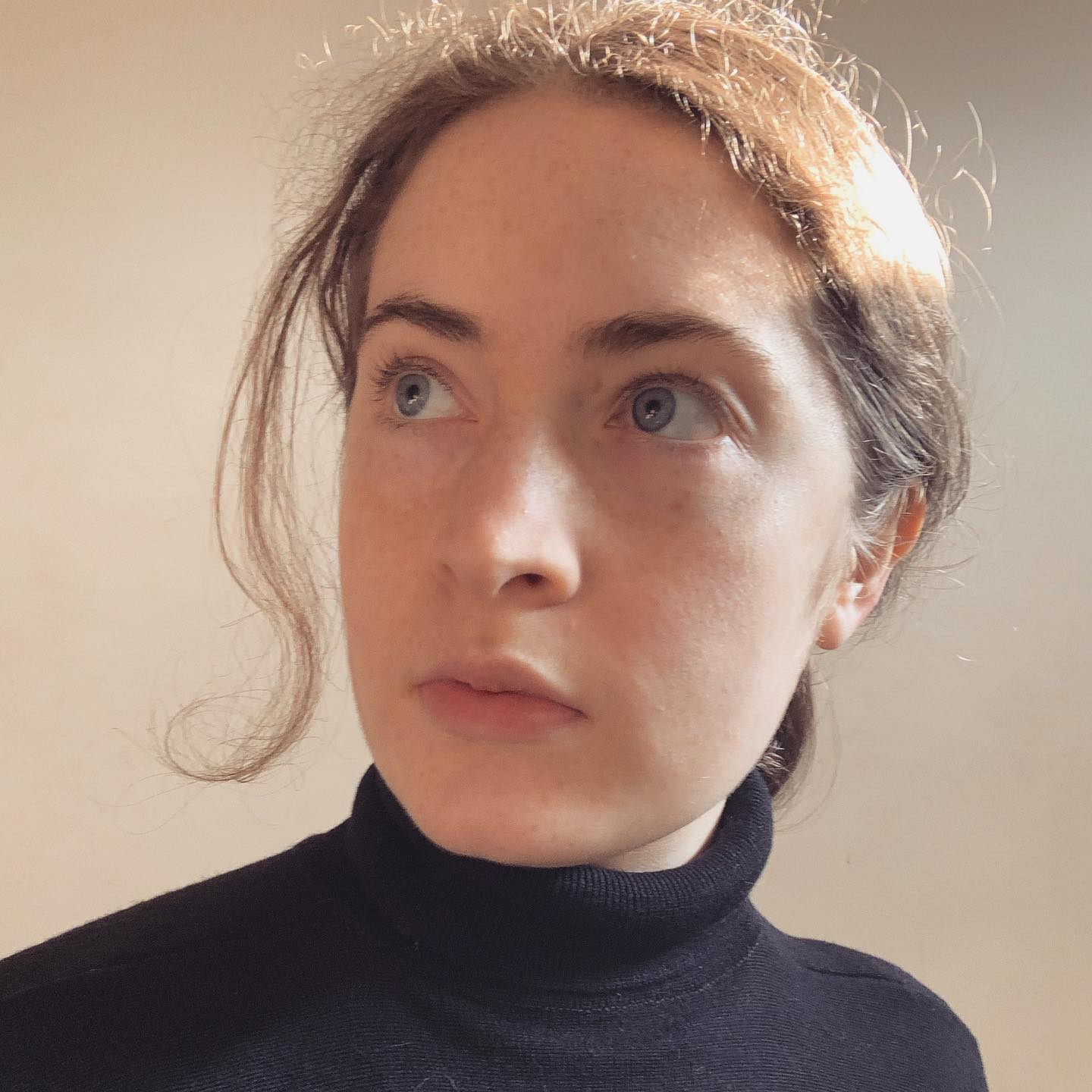
This year on the birthday of Wolfgang Amadeus Mozart while many classical music lovers celebrated the past, a young composer sought to bring his story forward to a new generation. Weaving Mozart’s beloved compositions in with her own original melodies, Charli Eglinton shines the light on the lesser-known story of the women in Mozart’s life and how they sought to protect him, in a brand-new musical “Saving Mozart.”
Classical Crossover Magazine was delighted to speak to Charli about the musical and we will be eagerly watching her new projects and continued development in what is sure to be a remarkable career.
Natasha Barbieri: Growing up did you always have an active imagination, and were you putting on stories for family and friends?
Charli Eglinton: Yes! For my first birthday, my grandma gave me a VHS of Disney’s Fantasia 2000 (which sets pieces of classical music to short animations) and that sparked a passion for both music and storytelling in me.
Growing up hooked on Disney and anime, I would spend all my time writing mad-cap comic / manga series, which eventually gave way to writing musicals!
Natasha Barbieri: Did you receive any formal music training before you began composing?
Charli Eglinton: I studied A Level Music at a fantastic sixth form college in London (where Mozart was part of our syllabus). My music teacher took us to see the 2016 ENO production of Don Giovanni which was my first time experiencing an opera – I at once fell in love with both Mozart and opera!
Composition-wise though, I’m completely self-taught.
Natasha Barbieri: Undertaking a full musical is an enormous task. Tell us about your musical “Eternally Yours” and what you learned.
Charli Eglinton: It really is – and I wish I could say it gets easier with practice!
‘Eternally Yours’ was originally a supernatural mystery manga series I’d written but decided could work well as a musical, so I (as an eager but very, very naive 17-year-old) set about adapting it…to say it was a learning curve would be an understatement!
The sign of a great show is to not realise the complex dramaturgical mechanics that make it ‘great’, so I spent a lot of time unpacking other musicals I admired and why they worked, to then address my own.
Eternally is really my ‘prototype’ project – it’s a kind of marker for me to look back on and see how far I’ve progressed with each new musical I write.
I actually rethought and rewrote the piece completely last summer in a musical called ‘Dyseheart’ shifting the focus to one of the other characters from Eternally and was very lucky to engage Broadway star Telly Leung for the lead role in a remote concept album.
Natasha Barbieri: What was the response from your teachers and peers when you began creating these early works?
Charli Eglinton: I was extremely lucky to have such a supportive network of teachers and peers all the way through this bizarre venture. Theatre is such a difficult industry to break into and musicals are surprisingly an extremely complex beast to get right – especially when you’re doing everything on your own! Without the encouragement and assurance I’ve had over the years, I’m not sure I’d still be doing what I’m doing.
Natasha Barbieri: When did the idea for “Saving Mozart” come about?
Charli Eglinton: After studying him at A Level, Mozart’s grown and grown on me – there’s just an outpour of raw emotion in his music that resonates deeply with me (as well as his 600 earworms permanently lodged in my head!)
And I do adore Peter Schaffer’s Amadeus, to the point where I wanted to write about Mozart myself – but needed to find an angle…
Natasha Barbieri: The story delves into the women behind Mozart which are stories lesser known to the public. How much research did you do before starting to compose?
Charli Eglinton: A bit of surface digging on the internet and I discovered he had an older sister – a prodigious, musical sister, Nannerl, who first inspired little Wolfgang to fall in love with music but was denied a career once she reached 18 (marriageable age).
As a fellow female composer, I was enthralled yet devastated by her story – and passionate to tell it. But her story stops after she turns 18, so I needed something else to make a show…
Further internet digging uncovered the incredible truth about Mozart’s wife, Constanze, and the pivotal role she played, keeping his fragile ego afloat and his finances in check for their brief 9-year relationship (before his early death, age 35).
But most amazing of all was to learn that, although the two women did not get along while Mozart was alive, after his death, they put all differences aside to compile his biography – without which, his legacy could have been lost to history!
And like that – I had my angle. The two women who saved Mozart.
I bought a whole raft of books to research Mozart – including John Suchet’s brilliant ‘Mozart: The Man Revealed’ to Penguin’s ‘Mozart: A Life in Letters’ which documented all written correspondence from him and his family across his lifetime. This was an invaluable insight into colouring the characters (and using snatches of verbatim throughout the script and songs).
To cross-reference, I also relied on a brilliant four-part BBC Documentary ‘The Genius of Mozart’ (2004) shot in part like a mockumentary. Watching reconstructions of his life made him and the world he existed intangible – I could visualise it in my head and felt confident enough to write it.
View this post on Instagram
Natasha Barbieri: Throughout the album, you have woven your original music together with fragments from Mozart’s famous compositions. Were these your personal favorites of his work?
Charli Eglinton: From the off with this project, I wanted to showcase that Mozart was the pop-star of his day (and make classical music accessible and fun – particularly for a younger audience who are largely disenfranchised with the classical genre.)
So I thought to weave a fragment of his work through every song might then spark an interest in people to listen to the original music (and hopefully fall in love as much as I did!)
All the way through my research phase, I’d have Mozart playing in the background – and any pieces that particularly struck me, I’d drop them into a special playlist.
So when it came to composing, I had a bank of over 80 pieces to choose from (that’s 80 narrowed down from a staggering 626!)
I wanted to showcase a mix of his music: the hits everyone knows and loves, but also some more obscure pieces – which in my opinion, are some of his most beautiful work (i.e fragments from the Piano Concerto No. 25 (ii) which I used in the song ‘She Just Doesn’t Know It Yet’.
Where possible, I tried to make my choices relevant to the story – i.e using the Marriage of Figaro overture for the song ‘I Say No’ which sees Wolfgang and Constanze’s parents trying to prevent their marriage.
Equally, I lifted passages of the Requiem – Lacrimosa in the song ‘Because of You’ where little Wolfgang mourns the death of Nannerl’s career (now she’s turned 18), and the Kyrie in the song ‘I Believed You’ marking the death of Wolfgang’s relationship with Constanze, who is outraged by his destructive, reckless tendencies.
Natasha Barbieri: Tell us a little bit about your process (i.e storyboarding, or starting with a specific song, do you write with certain voices in mind?)
Charli Eglinton: Call me old fashioned but whenever I start a new project, I map it out on cards so I can track the plot and look at song placements – it’s then easy to change things around if it doesn’t work.
Once I’ve got a structure nailed, I tackle the book first, marking where songs will go.
It sounds really pedantic but I can’t compose without knowing exactly what’s going on before and after a song!
Then, I comb through chronologically to complete the music. I find it easier to set up motifs and weave them through as I go than a scatter-gun approach, backwards engineering things afterwards (and I always write lyrics first – let the words structure and shape the music.)
I’m very lucky to know a brilliant pool of singers who I often use to bring my work to life, so with this project, I had a few definite voices in mind that I was writing for.
Work with singers long enough and you know by heart their range, their limitations but also what makes their voice sound its absolute best, which was really helpful to follow (though they’ll tell you that’s rubbish and that I always test them – but they certainly rose to the challenge on this album!)
Natasha Barbieri: What project is next for you?
Charli Eglinton: Next for me is…a very different show. I straddle writing two kinds of musicals – biopics / true stories and fantastical, larger-than-life original stories (where all my Disney / anime childhood comes into its own!)
I’m now writing a new original idea. I’m also working on redrafts for one of my other original musicals ‘EI8HT’ (a 20s mafia story with a steampunk twist) which is now in development in New York.
Incidentally, EI8HT began as a musical / opera fusion which had a sold-out premier at Andrew Lloyd Webber’s Other Palace Theatre in 2019, as part of the Tete A Tete Opera Festival.








